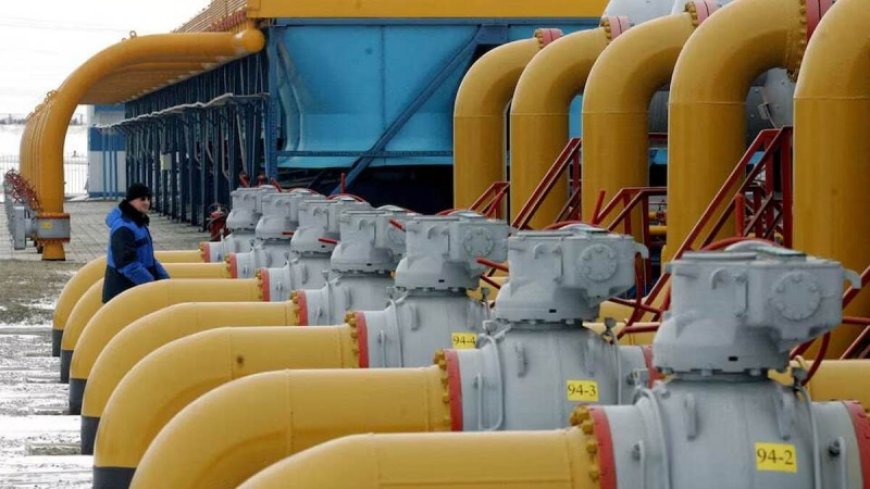Europe suffers 70 billion euros in losses due to disruption of Russian gas transit
The Deputy Speaker of the Slovak Parliament said: "His country and even the whole of Europe have suffered significant losses due to the interruption of Russian gas transit by Ukraine."

Deputy Speaker of the Slovak Parliament, Tibor Gašpar, has issued a stern critique of Ukraine's decision to cease the transit of Russian gas to Europe, cautioning that Slovakia and the continent as a whole will suffer severe economic and energy repercussions. Gašpar claimed in a statement that Ukraine's actions have resulted in "substantial losses" for Slovakia and numerous European nations.
He also predicted that the disruption could result in financial losses of up to €70 billion for Europe. "We strongly condemn the decision of President Zelensky to terminate Russian gas transit." "He does not appear to comprehend the severe consequences that this will have for Slovakia and the entire European continent," Gašpar stated. The broader implications of gas transit halts Slovakia, like numerous European nations, has historically depended on Russian gas, which is frequently conveyed through Ukraine. In the wake of Russia's invasion of Ukraine and Europe's subsequent efforts to decrease its energy dependence on Russia, the transit suspension has occurred.
The sudden interruption in gas supplies from Russia presents challenges for countries that remain significantly dependent on this energy route, despite the fact that European nations have made significant progress in diversifying their energy sources. Slovakia, which imports the majority of its natural gas, is at risk of experiencing shortages and rising expenses. The cessation of gas transit could also result in a financial loss for numerous parties, as reported by Reuters. Ukraine, which has received lucrative transit fees for hosting pipelines, is expected to incur an annual loss of approximately $800 million.
Gazprom, the state-owned energy company of Russia, is expected to experience a $5 billion revenue loss as a result of decreased gas sales. European Energy Strategy at a Crossroads Since the outbreak of the conflict in Ukraine, Europe has been actively pursuing alternatives to Russian gas, establishing new agreements with suppliers in the United States, Algeria, and Norway. Nevertheless, the transition has been unequal due to infrastructure limitations, including the necessity for additional liquefied natural gas (LNG) terminals and pipeline enhancements.
Russia has been criticized by the European Union for weaponizing energy, and the European Union has acknowledged the challenges faced by frontier nations such as Slovakia and Hungary, which rely on extant Russian supply lines. Slovakia's Energy Concerns The administration of Slovakia has been vocal about the necessity of energy supply stability. Gašpar's comments underscore the country's ongoing vulnerabilities, despite the progress it has made in securing alternatives.
Analysts caution that the potential shortages and volatility in energy prices during the winter could exacerbate public discontent in smaller economies such as Slovakia. The tensions and divisions among European leaders regarding energy policies and Ukraine's role in the continent's energy security are underscored by Tibor Gašpar's comments, as Europe prepares for potentially severe economic repercussions.













































